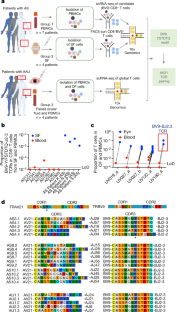がんセンターが患者の禁煙を支援することを示す全国調査 National study shows cancer centers help patients stop smoking
202212-06 ワシントン大学セントルイス
NCI指定がんセンター28施設における約70万人の患者のデータを調査した研究チームは、がんセンターの通常のがん治療にたばこ治療を組み込むことが有益であることを明らかにしました。
この知見は、12月6日付のJournal of Clinical Oncology誌に掲載されています。
<関連情報>
- https://source.wustl.edu/2022/12/study-supports-urging-smoking-cessation-treatment-to-patients-in-cancer-care/
- https://medicine.wustl.edu/news/national-study-shows-cancer-centers-help-patients-stop-smoking/
- https://ascopubs.org/doi/full/10.1200/JCO.22.00936
癌治療へのタバコ治療の統合。国立がん研究所指定のがんセンターにおけるエビデンスに基づくたばこ治療の到達度と有効性 Integrating Tobacco Treatment Into Oncology Care: Reach and Effectiveness of Evidence-Based Tobacco Treatment Across National Cancer Institute–Designated Cancer Centers
Sarah D. Hohl , Richard S. Matulewicz , Ramzi G. Salloum ,Jamie S. Ostroff ,Timothy B. Baker, Robert Schnoll , Graham Warren, ; Steven L. Bernstein , Mara Minion , Katie Lenhoff, ; Neely Dahl, Hee Soon Juon, Ursula Tsosie,Linda Fleisher,Heather D’Angelo, Alex T. Ramsey , Kimlin T. Ashing ,Betsy Rolland, Margaret B. Nolan ,; Jennifer E. Bird , Claire V.T. Nguyen, Danielle Pauk, Robert T. Adsit , Hilary A. Tindle, Kimberly Shoenbill , Sophia Yeung , Cary A. Presant , Kara P. Wiseman, Kuang-Yi Wen, Lou-Anne Chichester and Li-Shiun Chen
Journal of Clinical Oncology Published: December 06, 2022
DOI: 10.1200/JCO.22.00936 Journal of Clinical Oncology

ABSTRACT
PURPOSE
Quitting smoking improves patients’ clinical outcomes, yet smoking is not commonly addressed as part of cancer care. The Cancer Center Cessation Initiative (C3I) supports National Cancer Institute–designated cancer centers to integrate tobacco treatment programs (TTPs) into routine cancer care. C3I centers vary in size, implementation strategies used, and treatment approaches. We examined associations of these contextual factors with treatment reach and smoking cessation effectiveness.
METHODS
This cross-sectional study used survey data from 28 C3I centers that reported tobacco treatment data during the first 6 months of 2021. Primary outcomes of interest were treatment reach (reach)—the proportion of patients identified as currently smoking who received at least one evidence-based tobacco treatment component (eg, counseling and pharmacotherapy)—and smoking cessation effectiveness (effectiveness)—the proportion of patients reporting 7-day point prevalence abstinence at 6-month follow-up. Center-level differences in reach and effectiveness were examined by center characteristics, implementation strategies, and tobacco treatment components.
RESULTS
Of the total 692,662 unique patients seen, 44,437 reported current smoking. Across centers, a median of 96% of patients were screened for tobacco use, median smoking prevalence was 7.4%, median reach was 15.4%, and median effectiveness was 18.4%. Center-level characteristics associated with higher reach included higher smoking prevalence, use of center-wide TTP, and lower patient-to-tobacco treatment specialist ratio. Higher effectiveness was observed at centers that served a larger overall population and population of patients who smoke, reported a higher smoking prevalence, and/or offered electronic health record referrals via a closed-loop system.
CONCLUSION
Whole-center TTP implementation among inpatients and outpatients, and increasing staff-to-patient ratios may improve TTP reach. Designating personnel with tobacco treatment expertise and resources to increase tobacco treatment dose or intensity may improve smoking cessation effectiveness.


